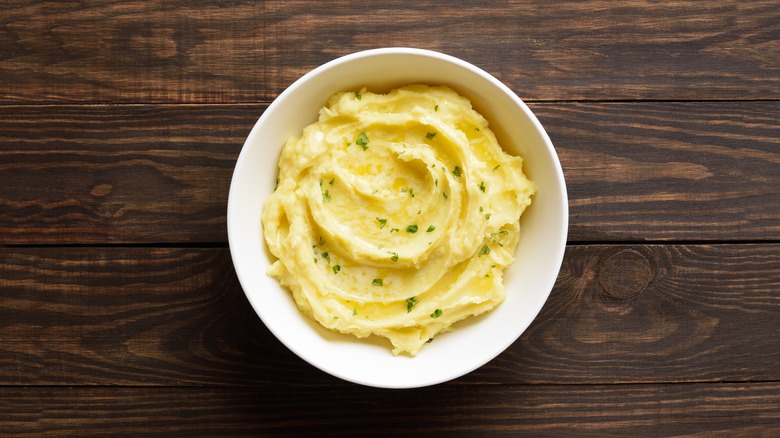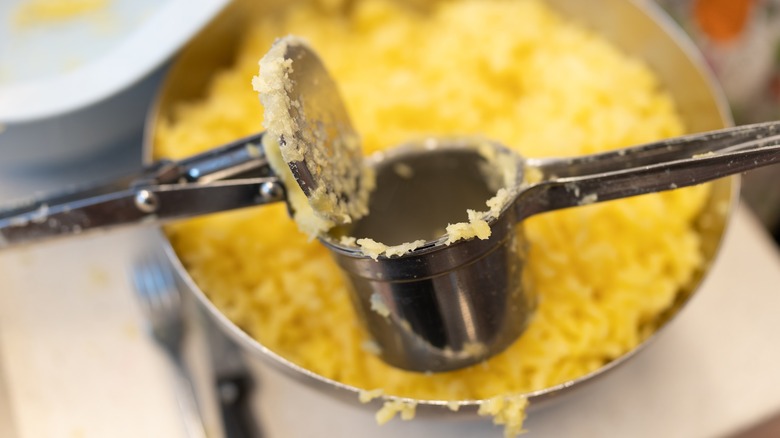The Worst Tools For Making Creamy Mashed Potatoes
Mashed potatoes should be mashed, but not mushy. There's nothing like a holiday plate heaped with fluffy, buttery mashed potatoes. Because they are so essential to a festive spread, there are countless mashed potato prep hacks (sour cream for balance, roasted garlic for flavor). Getting a blender, mixer, or food processor involved, however, probably shouldn't be one of them. You want potatoes that are airy, not heavy, and dreamy, creamy texture begins with the right tools.
It might sound simple to give your potatoes the smoothie treatment. Just drop them in the blender and hit the right button, right? While this method might give you a little extra time to pick a flick for the post-meal movie or shake up a sweet seasonal cocktail, it'll result in goopy, gluey mashed potatoes. You can't escape science, even when it comes to your beloved spuds; and it turns out there's a scientific reason you should skip the mixer at your next holiday dinner.
Skip the mixer for marvelous mashed potatoes
Breaking down your pounds of freshly peeled potatoes with a forceful tool like an electric mixer or food processor creates sad, sticky mashed potatoes. This happens because your starchy spuds are actually pretty sensitive. Overworking your taters with an abrasive blade breaks the starch molecules. This releases the starch, giving your mashed potatoes a gluey, tacky texture. Unfortunately, your mixer or blender can attack those starch molecules pretty quickly, so it's best to avoid them altogether.
While a potato masher seems like the obvious choice, it can lead to lumpy mashed potatoes. It can be hard to get an even mash, and you'll end up with some areas that are over-mashed, while other spots are chunky. A ricer or a food mill are both solid, reliable options for getting your potatoes smooth, without overdoing it. A ricer is ideal because the tool is sleek and convenient, and pretty simple to use.

